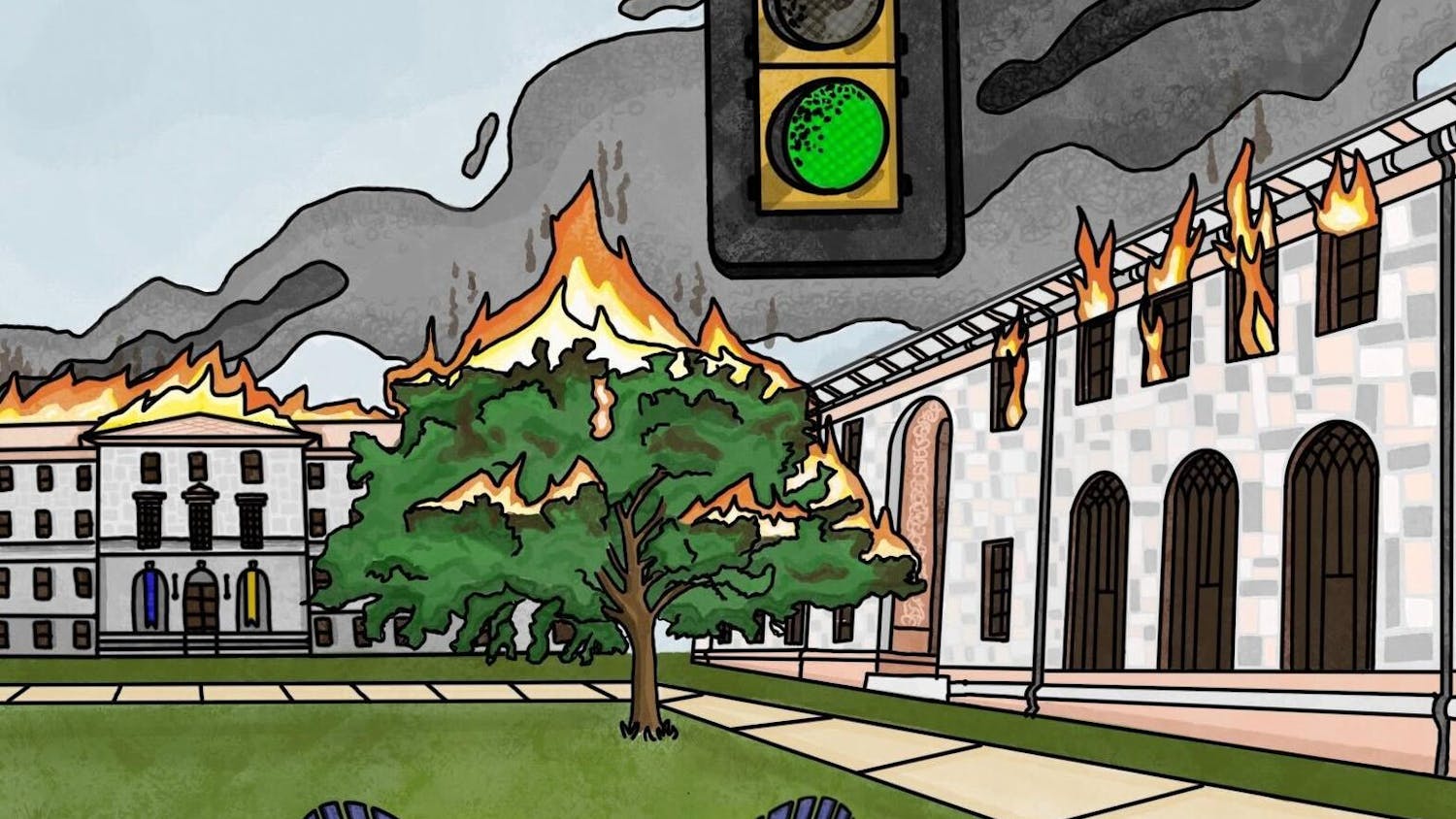
I contracted COVID-19 in the fall of 2020, before the vaccine was released and when getting the virus left us uncertain about what to do. I lost my sense of taste, my nose was stuffy and yet, I still attended all of my online classes. Modern medicine had no solutions for me, so I turned to traditional herbal medicines. My grandfather, a deep believer in ayurveda, traditional Indian medicine usually derived from plants, told me to make tulsi tea and drink haldi ka doodh, or turmeric milk. Soon, I fully recovered from my COVID-19 symptoms. Beyond the strength of my immune system, I wondered which had actually helped me: The holistic treatments themselves or simply my belief in their abilities? At the end of the day, regardless of whether or not a placebo effect was the reason, holistic medicine helped me and it should be incorporated into modern medical practices globally.
Holistic medical practices use a whole-person approach, treating each patient by incorporating physical, spiritual and mental health. For example, the holistic treatment of tulsi tea that my grandfather sent me to drink was meant to boost both physical and spiritual health, as Tulsi is the form of a goddess in Hindu mythology and imbibing Tulsi is meant to heal your body and soul. These holistic traditions vary around the world; indeed, some form of holistic medicine is practiced by 170 countries around the world. Despite its prevalence, the debate around the true effectiveness of holistic medicine has been around for centuries.
Many modern doctors do not trust holistic practitioners due to their perceived lack of scientific knowledge, causing them to discount this interdisciplinary approach to health and wellness as a hoax. However, these practices have been around in written form since 200 B.C. for a good reason: They work. Some medical schools, including top-ranking schools such as Harvard Medical School (Mass.) and Johns Hopkins Medical School (Md.), have begun offering classes on alternative medical practices as electives; but, even in these schools, some professors, such as Johns Hopkins Professor of Biomedical Engineering and Genetic Medicine Steven Salzberg call alternative medicine “utter nonsense.” Positive results from holistic medicine are generally attributed to the placebo effect: If the patient thinks the treatment will work, it will reduce stress and fatigue, which, in turn, will increase healthiness.
The limited view of medicine removes entire fields of practice from the scope of modern medicine and eliminates chances to make healthcare more accessible to all people, due to the lower cost of holistic therapies and medicine and greater trust of often-marginalized groups in holistic medicines. Ultimately, the effectiveness of holistic treatment is not necessary for its utilization. As long as it continues to benefit people, from those around the world to Emory University students like us, we should combine both traditional and modern medicines.
As we explore using holistic practices to augment medicine, it is important to consider the roots of the distrust in these practices: Colonial times. In sub-Saharan Africa in the late 1800s, European nations — including Britain, France, Germany, Belgium, Portugal and Spain — undermined traditional healing practices by prioritizing resources, legalization and support for colonial medicine that did not align with traditional medical practices; they treated European medicine as civilized, a way to improve the supposedly undeveloped populations they ruled. It is ironic, considering they believed bloodletting was the pinnacle of modern medicine and had, only a few centuries prior, used medical herbs copiously. Shaming traditional practices and existing knowledge was one technique used to dehumanize colonized countries and establish European knowledge bases as the only ones, deepening colonial ties.
This legacy of colonization had devastating effects. Today, central African countries lack trust in modern medical practices, but they have continued to have trust in holistic practices. In fact, the global demand for holistic medicine is 80% across countries, revealing the need to incorporate it globally. Thus, bridging holistic and modern techniques could prove key to rebuilding trust and globally improving healthcare outcomes.
In fact, there are even certified naturopathic doctors with years of rigorous training similar to medical doctors who can provide optimized treatments and help avoid potentially dangerous medicines. The goal of all medicine is to bolster one’s health, and if integrative medicine, modern medicine in conjunction with traditional medicine, will improve health, then we should embrace it.
Importantly, this integration can and has been done. When I shadowed Dr. Jason Schneider at Resurgens Orthopaedic Clinic in Roswell, Georgia, a patient presented in the clinic who was unable to take anti-inflammatory medications due to certain health conditions. Modern medicine had no solution for her, but since the doctor had made a conscientious effort to learn holistic practices, he suggested taking turmeric pills. Turmeric, also known as haldi, is a traditional Indian medicine and a proven antioxidant and anti-inflammatory. Bringing traditional medicine to a modern doctor’s office provided a new option for patients.
. Change has begun: In 2022, the World Health Organization set up the Global Traditional Medicine Centre. This center works to understand traditional medical practices and bring that knowledge to global health policy. Despite this first step, there is still so far to go for the incorporation and validation of traditional medicine into modern practices.
The next time you feel sick and go visit your doctor or Student Health Services, consider asking them about holistic solutions too. After all, bringing together millenia of tradition with modern medical advancement can only make healthcare better for everyone.
Sara Garg (27C) is from Johns Creek, Ga.







